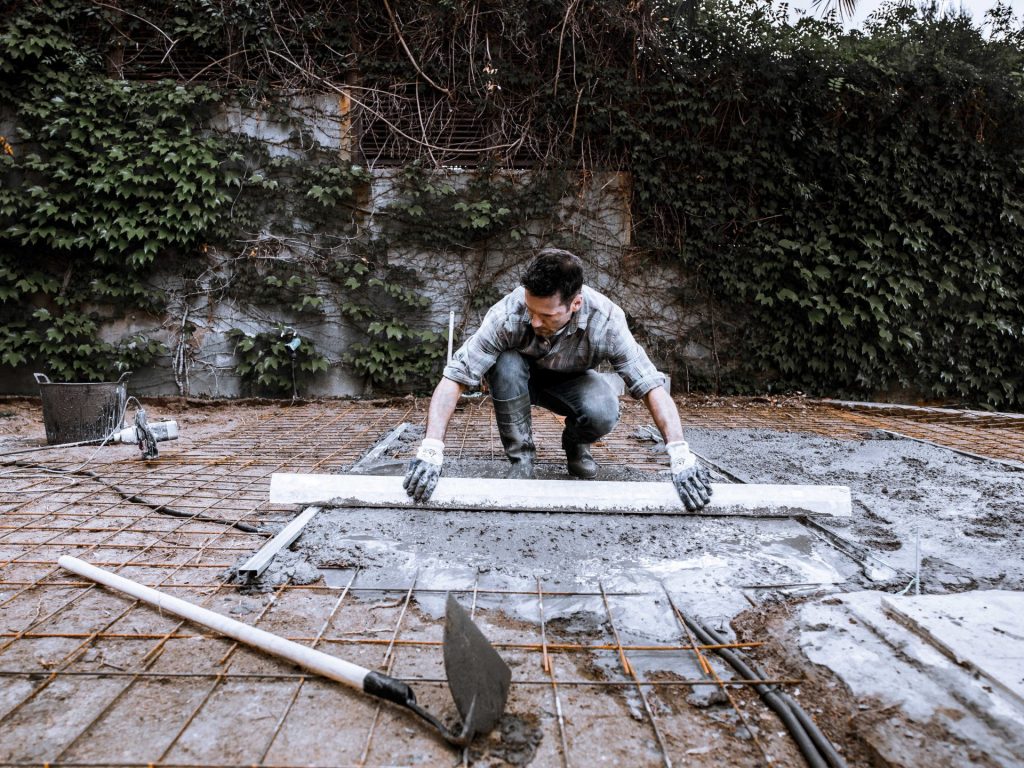Foundation Problems Fort Worth TX: What Homeowners Should Know
Foundation problems Fort Worth TX residents deal with are more common than you’d think. From Arlington Heights to Tanglewood and Ridglea Hills, homes across the city face serious risk from shifting soil and unpredictable weather.
The good news? These issues often start small—and early detection can prevent major repairs. Whether you’re noticing sticky doors, cracked bricks, or sagging floors, this guide explains what to look for, why it’s happening, and how to fix it before things get worse.
📍 See our Fort Worth service area
🔧 Explore our foundation repair services

Why Fort Worth Homes Are at Higher Risk
Fort Worth is built on expansive clay soil that reacts to moisture changes. When it rains, the soil swells. During dry spells, it contracts. This repeated motion puts year-round pressure on your home’s foundation.
Key risk factors include:
- Clay-heavy Blackland Prairie soil
- Flash floods and long summer droughts
- Tree roots pulling moisture from the soil
- Rapid development with inconsistent soil prep
- Homes near creeks, flood zones, or poor drainage
These issues make regular inspection and early action essential. Fortunately, there are cost-effective solutions when caught early.
📍 Learn more about our Fort Worth location
🔧 Explore our local foundation services
Top 10 Warning Signs of Foundation Problems Fort Worth TX Homes Show
1. Cracks in Walls or Ceilings
Diagonal or stair-step cracks around doors and windows often indicate shifting.
2. Sticking Doors and Windows
If they jam or don’t close properly, your foundation may be out of level.
3. Sloping or Uneven Floors
Use a marble or level to check—if it rolls, the floor is uneven.
4. Gaps Around Frames
Visible gaps around windows and doors are a sign of movement.
5. Exterior Brick Cracks
Look for cracks that zigzag through the mortar—especially on corners.
6. Slab or Garage Floor Cracks
Cracks wider than ¼ inch should be evaluated by a professional.
7. Chimney Separation
A leaning chimney is a strong signal of foundation settlement.
8. Nail Pops or Separated Trim
Wall movement can cause nails to emerge or trim to pull apart.
9. Plumbing Leaks
Shifting slabs can break water lines beneath your home.
10. Musty Crawlspaces or Mold
Moisture buildup from poor drainage is often foundation-related.
👉 Schedule your free inspection in Fort Worth
Understanding Fort Worth’s Soil and Climate Challenges
Frequent rainfall and hot summers (verified by NOAA climate data) create a cycle of soil expansion and contraction in Fort Worth. Homes built on this shifting ground face constant pressure that leads to structural movement.
Foundation risk in Fort Worth is largely due to clay soil that swells when wet and shrinks during dry spells, causing constant movement. Stormwater runoff and flash flooding can lead to water pooling near the foundation, while older neighborhoods often have poor drainage. Additionally, tree-lined streets may have roots that pull moisture from the soil, creating uneven drying and added stress on the foundation.
Regular inspections can catch these changes early and help you avoid costly structural damage.
DIY Foundation Checks for Fort Worth Homeowners
You don’t need special tools to keep an eye on your foundation. Here’s how to stay ahead:
- Walk your home’s perimeter monthly
- Look for new cracks in walls or slabs
- Drop a marble on floors to test for slope
- Test doors and windows for sticking
- Check caulking and trim for separation
- Watch your water bill for sudden increases
- Photograph changes and compare monthly
These tips are easy, and spotting a change early gives you more repair options.
Why Hire a Fort Worth Foundation Expert
Local experience matters. Fort Worth-based foundation contractors know the soil, understand local permitting, and have likely worked on homes just like yours.
What to look for in a contractor:
- Free, no-pressure inspections
- Written warranties and transparent quotes
- Solid reviews from local neighborhoods
- Experience with slab and pier-and-beam systems
- Familiarity with Fort Worth’s building codes
🏠 Read local testimonials and reviews
Common Foundation Repairs Used in Fort Worth
Steel Piers
Deep and durable—ideal for long-term support in expansive clay soil.
Concrete Pressed Piers
A budget-friendly option for residential slab repairs.
Foam Injection / Mudjacking
Great for lifting sidewalks, driveways, or slightly sunken slabs.
Root Barriers
Stop trees from drawing moisture from under your foundation.
Drainage Re-Grading and French Drains
Help direct water away from the home.
Soil Injection
Helps stabilize soil and minimize future movement during droughts.
Each home is different, so your contractor should recommend solutions based on your specific soil and structure.
Why Early Detection Saves You Thousands
Foundation issues don’t get better with time. In fact, delaying repairs almost always means higher costs:
- Minor crack repair: $600–$1,200
- Pier installation: $4,000–$10,000
- Major structural rebuild: $20,000+
Foundation repairs also rarely qualify for insurance unless caused by a covered event. That’s why prevention is your best investment. Book an inspection today.
Frequently Asked Questions (FAQ)
Look for wall cracks, sloping floors, sticking doors, or water leaks under the home.
They vary. Catching issues early can keep costs below $1,000. Delays may lead to $10K+ repairs.
Typically no—unless caused by a covered peril like a burst pipe or flood.
Steel piers and concrete pressed piers are most effective for our expansive clay soils.
Yes, but it may lower the value. Most sellers repair the foundation first to avoid complications.
Final Thoughts
Foundation problems Fort Worth TX homeowners face can be overwhelming—but they don’t have to be. With regular checks and the help of a local expert, you can prevent expensive damage and keep your home safe and stable. Look for the signs. Take action early. And work with someone who knows Fort Worth’s soil like the back of their hand.
📍 Check out our Fort Worth service area
📞 Schedule your free foundation inspection
🔧 Explore all our services

